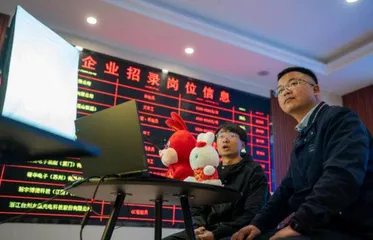True Democracy Shown in Democratic System with Chinese Characteristics
作者: Jean-Christophe Iseux

Alexis de Tocqueville wrote De la Democratie en Amerique a brilliant analysis of the North-American democratic system, and in the process conducted a thorough critique of the European democratic system of his time. I went to China in 1997 and have stayed there for 25 years as an adviser to several government units. I wrote an analysis of China’s political and democratic system in a booklet entitled Insights from China: Leadership, Policies, New World Order. I would like here to introduce my own understanding of China’s unique democratic system -- the China Socialist Consultative Democratic System (CSCDS), which allows the Western mind to fully understand China’s path to modernization, introduced by President Xi Jinping on the occasion of the 20th National Congress of the CPC.
Difficulties in understanding between East and West
The re-emergence of China as a considerable source of economic and political power in the international sphere, the disturbances to Western democracy, and the attempt of various people to re-establish something akin to the Cold War between the West and the East, make it essential, if we are to avert another world catastrophe, that we understand each other better. In particular, the West needs to understand how China works today, for China and the West are deeply different in their culture and history.
Firstly, Western thought is based on a monotheistic tradition, derived from Christianity. There is one God. However, in China people can simultaneously venerate their ancestors, believe in the inter-fusion of nature and culture, in Daoism, practice various forms of Buddhism, and accept the ethical and social philosophy of Confucius. So in Chinese culture, there is no religion, yet elements of religion are everywhere.
Secondly, another difficulty is the difference in logic between West and East. The West indulges in hypothetico-inductive, manicheist, often static logic derived from Greek and Roman thought tempered by the Scientific Revolution. The East, on the other hand, has refined 3000 years of evolving logic, based on the dialectic movement between immanence and transcendence. In practical terms, Western logic gives the Western world a Judeo-Christian principle of right and wrong (or black and white, with few shades of gray), while Eastern logic gives China a Confucian “Doctrine of the Mean” (principle of harmony with many shades of gray, and little that is black or white), where everything is in a transitional state of becoming yin or yang. Western social structure is based on extreme individualism, particularly in the Anglo-sphere, as opposed to the group-based system of China where family comes before the individual – the individual still being respected within the group.
Thirdly, the contrast between an ancient bureaucratic, imperial system in China, where position was gained through educational merit, and the feudal, contending systems of the West, where power is based on economic and military force. The capitalist market system of the West historically was very different from the petty-commodity systems of China. The basically competitive and aggressive, militaristic world of the West, with constant wars, struggles and fights, is totally different from the tradition of China based on harmony, the avoidance of war if possible, and collaboration rather than competition. Hence the imperial systems of the West, based on conquest and seizing of territory are very different from China based on the concept of being in the middle, around which satellites are arranged.
For almost 200 years, Chinese civilization, the most ancient continuous civilization in world history, was regarded with disdain and distrust by people in the West. Ever since the First Opium War of 1840, the West has believed itself to be superior to “backward”. That all this was a mythical projection based on ignorance did not stop it being widespread. Though China has gone through major changed, the utterances of many Western politicians, and the relentlessly biased Western press, have managed to continue elements of this narrative. Given the almost hopeless task of trying to throw some light on one of the most contentious areas of misunderstanding, namely the constant accusation that the Chinese lack “democracy” and “human rights”, it is worth trying to look at China with the eyes of Tocqueville, in order to correct these misunderstandings and prejudice.
The Western democratic model challenged by Tocqueville’s principles
Tocqueville was well aware that there were two major models of democracy in Europe. There was the French version, which tends to favour equality over liberty, and the British model, which tends to favour liberty over equality. Tocqueville realized that respect for various forms of democratic system, based on a broad representation of citizens at parliamentary level, was not necessarily based on party politics with universal voting rights. He was well aware of many of the defects of the kind of democracy being promoted in the Anglo-sphere. He realized that there were weaknesses in a parliamentary system of the kind he saw in Britain and growing in America.
Tocqueville might not have foreseen the way in which elections in the West are held so frequently, and politicians so often fail to deliver on their promises, that citizens lose civic interest to vote, and that too much power is placed in the hands of civil servants. Yet he would have seen the need for effective power checks and balances to avoid the populist clamours of the majority, resulting from the closeness between people and power. He was very aware of the importance of intermediary powers, such as voluntary associations, as well as an active and recognised “civil society”, to be consulted in a systematic way, with free expression of a diversity of opinions. Tocqueville would also have stressed that over-centralization and attempts to impose uniformity would crush the important differences between parts of a large country. A proper democratic system must allow margins of discretion in accordance with specific contextual and cultural differences. Tocqueville saw the French Revolution as the most visible consequence of France’s over-centralisation.